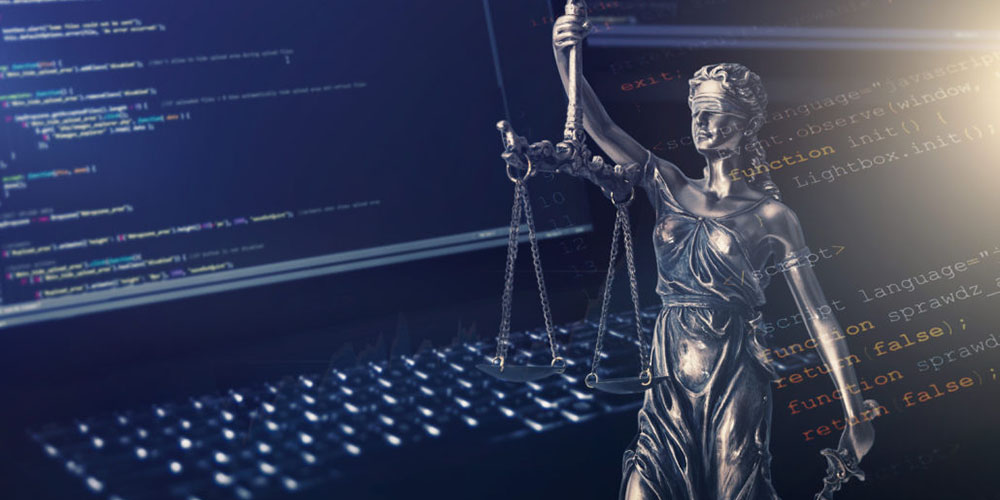As lawyers we must be guided by the Rules of Professional Conduct in all aspects of our work. Today that includes competence in relevant technology. Technology is deeply embedded in contemporary legal practice, while data security is a universal concern across the legal sector. Litigators additionally must contend with the evolving demands of eDiscovery.
The duty of competence includes competence in relevant technology
Competence is the first rule for lawyers – in every sense. ABA Model Rule 1.1 reads:
A lawyer shall provide competent representation to a client. Competent representation requires the legal knowledge, skill, thoroughness and preparation reasonably necessary for the representation.
In 2012, the ABA amended Comment 8 to Rule 1.1 to read (emphasis added):
To maintain the requisite knowledge and skill, a lawyer shall keep abreast of changes in the law and its practice, including the benefits and risks associated with relevant technology.
At last count, 38 states had adopted this language verbatim or with minor wording changes. A few other states have issued formal opinions to the same effect. Requiring lawyers to have a basic degree of competence in technology has graduated from trend to clear majority opinion.
Relevant technology, part 1: legal practice tech tools
The key phrase in Comment 8 is “relevant technology” in conjunction with “reasonably necessary for the representation.” Technology has become an essential and inescapable part of the law in all practice areas.
From solo practitioners to BigLaw, lawyers use technology for:
- Documents and operations – document management systems, cloud storage, e-rooms, file-sharing, time and billing software;
- Communications and collaboration – email, messaging, chat, phone conferences and video conferences;
- Litigation practice – online legal research, e-filing, eDiscovery software, video depositions, remote depositions, evidence presentation equipment and software.
Using legal practice tech helps us be good stewards of our time and our client’s money. The not-so-secret key to learning to use technology effectively is training and practice.
Tech competence extends beyond personal use however. Staying informed about associated risks and benefits includes evaluating and selecting the best tech tools for the job. At times it involves counseling clients about technology options and costs. Finally, it means knowing when and how to delegate (with appropriate supervision) or automate tasks to get the most from technology.
Relevant technology, part 2: data security
Legal practice tech wins for variety. Data security wins for urgency.
Confidential personal and business information is the legal sector’s stock in trade. We copy, transfer, access and store sensitive client files as a matter of course. A law firm is a one stop shop for a sizable trove of data from multiple individuals and companies. Data that has been pre-selected for its value.
The common law duty to protect confidential and privileged information is reinforced by ABA Model Rule 1.6:
A lawyer shall make reasonable efforts to prevent the inadvertent or unauthorized disclosure of, or unauthorized access to, information relating to the representation of a client.
Data security intersects with legal practice technology at many points. Data must be secured in transit (file sharing, lawyer-client communications, etc.). It must also be secured at rest (law firm server, cloud storage, copies held by service providers and experts, etc.). Remote working has recently highlighted the importance of updating privacy and security settings in videoconferencing and other collaboration tools.
Following security best practices is essential technology competence for all lawyers. For example:
- Use strong, unique passwords;
- Make sure data is regularly backed up;
- Watch out for phishing emails;
- Never connect to unsecured wifi;
- Utilize secure file transfer means;
- Enable auto-lock on inactivity; and
- Comply with information security policies and procedures.
And of course, be vigilant against security threats and use common sense.
Relevant technology, part 3: eDiscovery
It’s hardly an overstatement to say that all document discovery is eDiscovery. The vast majority of “documents” is ESI. The remaining paper is digitized for business use and/or discovery.
Technology competence is necessary for four general categories of eDiscovery tasks:
- Representations to opposing counsel and the court – Discovery involves numerous representations in written discovery responses, initial disclosures, meet and confers, discovery plans and discovery motions. Making accurate representations requires knowledge of ESI types and sources, production format and the significance of proportionality factors like data volume, cost and burden.
- Preservation – Knowledge of ESI types and sources also comes into play in writing effective preservation demand letters and legal hold notices. Some other tech-related aspects of preservation are auto-deletion (a high-risk area in preservation), IT protocols for employee separation and forensic imaging.
- Managing the eDiscovery project – Managing an eDiscovery project demands both wide-ranging and deep understanding of technology. This is especially true of the collection, processing and production stages of the EDRM workflow. Some cases additionally involve digital forensics.
- Document review – Document review is a complex operation. Reviewers need software training and experience to use review platforms effectively. Filtering, searching and utilizing advanced analytics tools requires a) knowledge of the ESI types in the dataset, b) review goals and c) review tool capabilities. Quality control similarly must be tailored to the review project, and can be technologically sophisticated; for example, statistical sampling in predictive coding reviews.
Lawyers depend on law practice tech tools. Clients’ information is electronic. Litigation involves eDiscovery. The conclusion is inescapable: technology is an inextricable part of contemporary legal practice. Using technology well is our professional responsibility to our clients.


